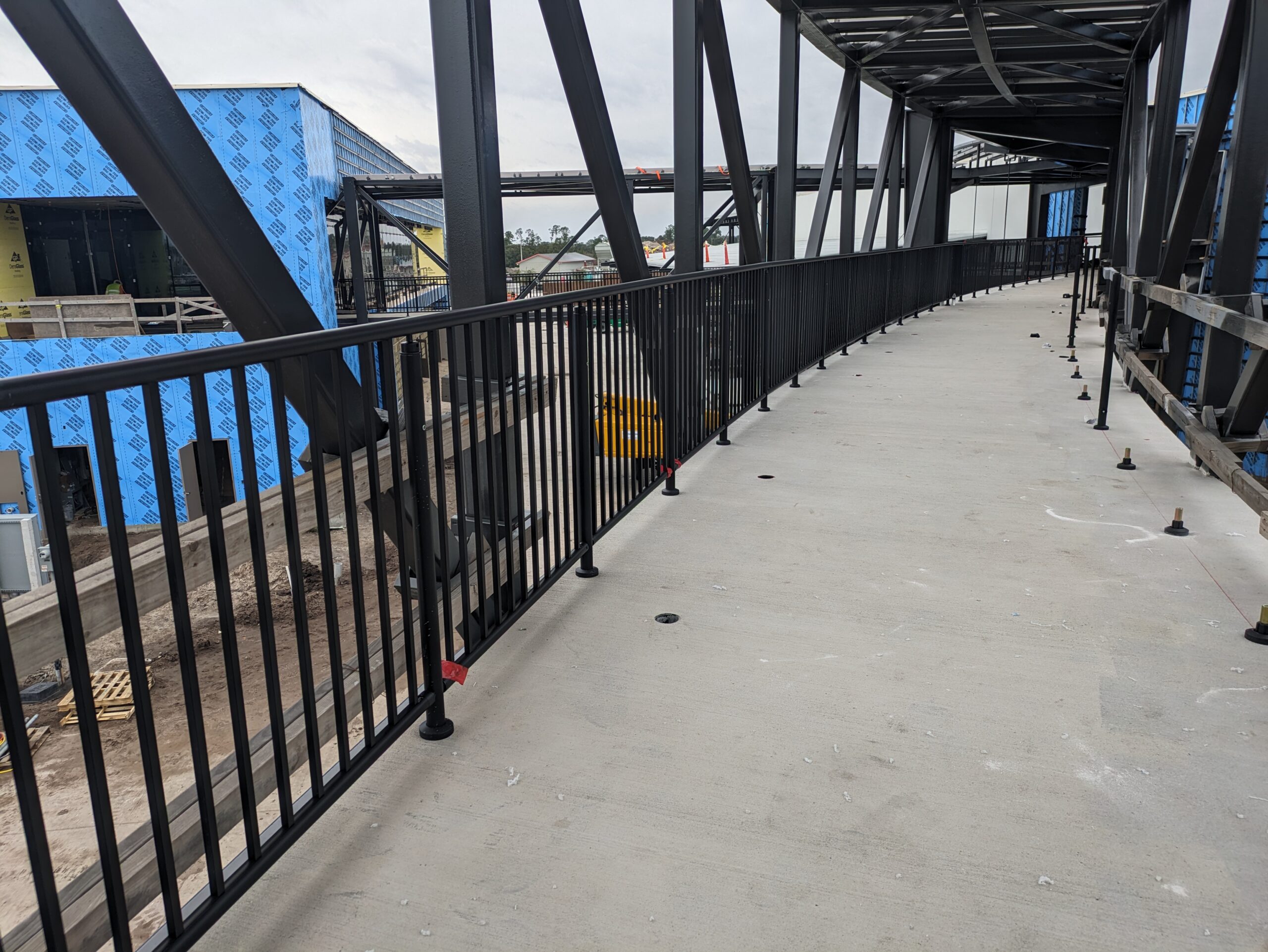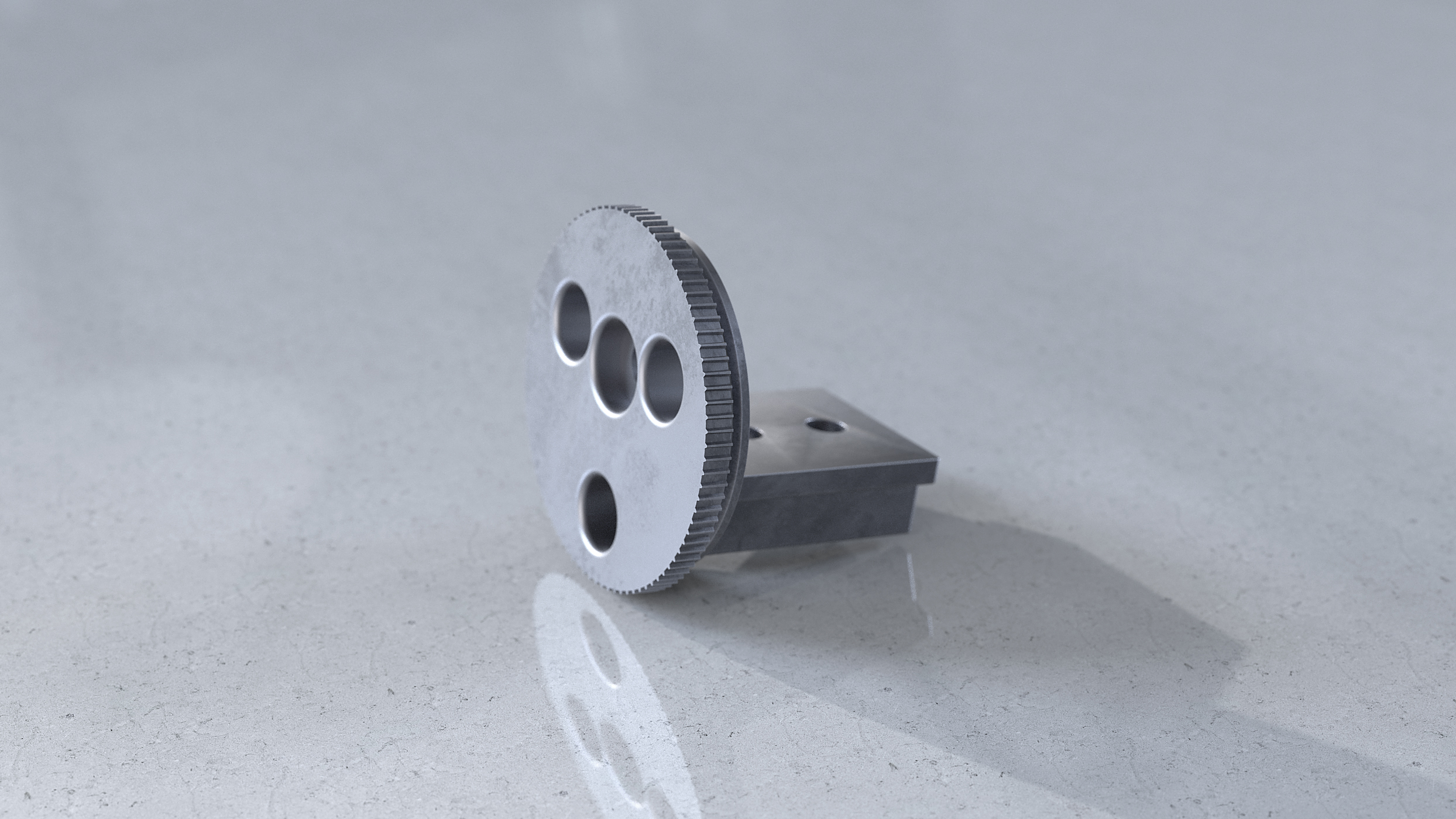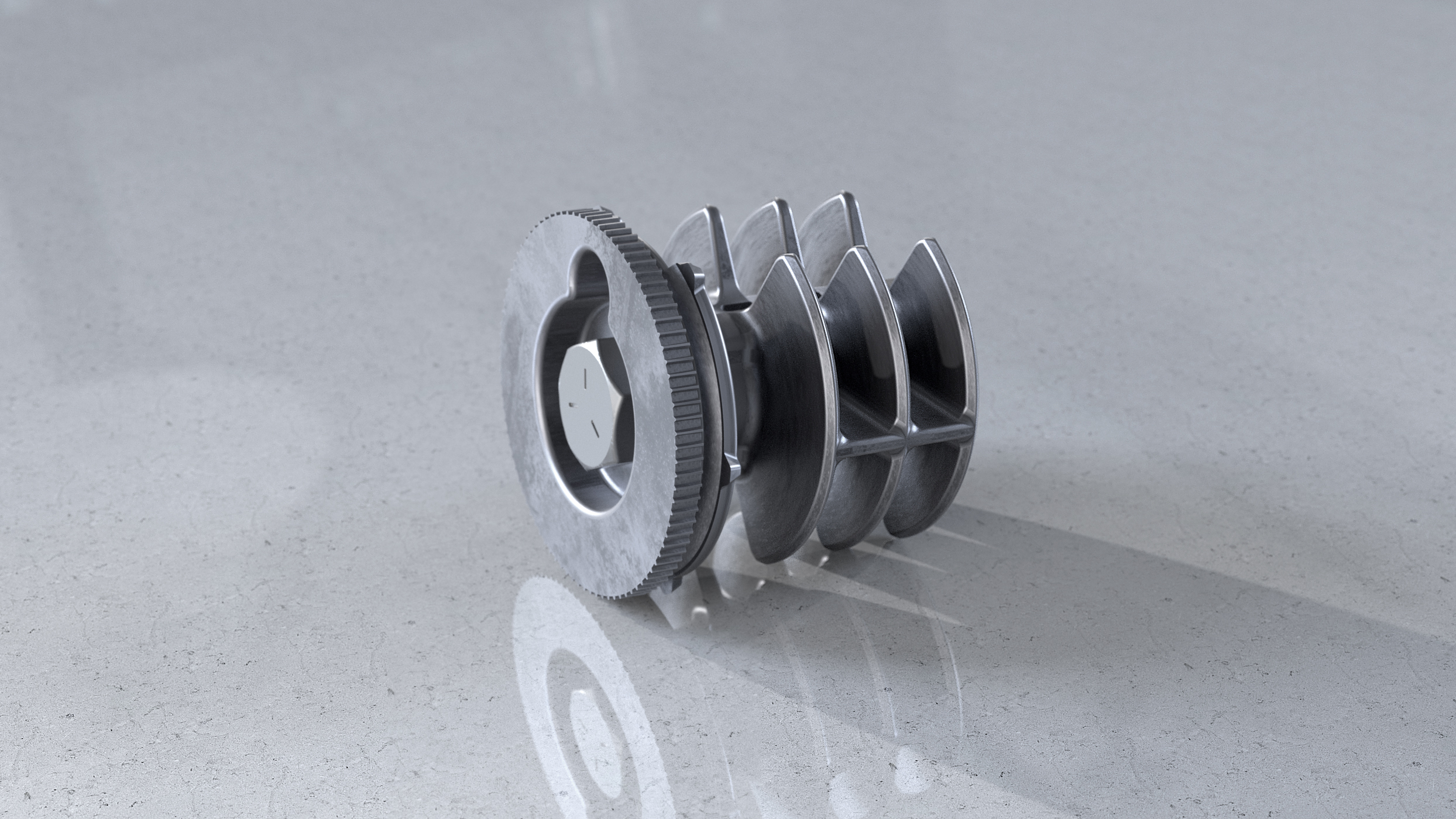When it comes to places where handrails are needed most, hospitals quickly come to mind. From patients recovering from surgery to elderly patients in need of added support, easily accessible, safe and hygienic handrails are a necessity in many areas of a hospital. Hospital handrails can frequently be found in stairways, walkways, ramps and hallways. Handrails and grab bars may be necessary for hospital bathrooms as well.
Promenaid handrails are an excellent choice for hospital handrails, especially when railings are needed in unique spaces. Our modular handrails are simple to install, causing minimal disruption to daily activity during installation. Read on to learn more about hospital handrail best practices and how our high-quality handrails can help.
Requirements for Handrails in Hospitals
Hygienic and Easy to Sanitize
In a hospital environment, everything must be easy to clean and sanitize to protect the health of patients and staff. Therefore, choosing a material that is easily cleaned is essential to protecting the safety of all who enter the hospital. With their smooth finish, aluminum handrails are easy to clean and can be sanitized quickly. Promenaid Endura™ anodized aluminum handrails are scratch and chip resistant, ensuring a long-lasting smooth surface that’s easy to clean. This 18-micron anodized layer is the thickest commercial grade.
Aesthetics
Hospitals that used to be simple, sterile environments have given way to environments that are welcoming, friendly and promote healing. To accomplish this transition from bare and cold to warm and friendly, hospital designers have been very intentional when choosing materials for each aspect of the design. For example, hospital handrails could be an afterthought to the design, but they are now an integral part of creating a welcoming and friendly environment.
Finding the right balance of beauty and function in a hospital handrail isn’t always easy. It needs to be aesthetically pleasing, and it must also be functional, easily identifiable and easily accessible.
Commercial duty and high-traffic capability
Hospitals must balance their purpose as a healing environment with their needs as a commercial business. Therefore, all of the materials integrated into a hospital design must have the capacity to withstand high traffic and to be easily cleaned and incorporated into the hospital’s design. Promenaid handrails combine functionality with aesthetically pleasing finishes and designs. When you install our hospital handrails, you won’t have to sacrifice design to achieve a safe, functional handrail in any space.
Code compliance
Above all, hospital handrails must comply with Commercial Building Code requirements and adhere to the Americans with Disabilities Act (ADA) standards. Of course, it’s even better if both of these objectives can be accomplished while maintaining a pleasing aesthetic.
ADA standards require handrails to be between 1-¼ inches and 2 inches in diameter. There are provisions for non-circular cross-sections, but a circular cross-section allows for a power grip (where the fingers flex back toward the palm). This grip is five times stronger than a pinch grip (where the fingers are pinching towards the thumb). A power grip helps prevent falls and injuries resulting from those falls.
Handrails must be 34-38 inches above the stair nosings or floor surface to comply with ADA regulations. This optimal height gives the vast majority of people easy access to the hospital handrail. An additional 12 inches of handrail length is required at the top of a set of stairs, and the equivalent of one-tread depth is required at the bottom.
The ADA also requires that the ends of a handrail either return to the wall or the floor surface to prevent snags on clothing or bags that could throw someone off balance, causing a fall. Promenaid offers modular handrail kits and pieces that simplify the process of creating ADA-compliant handrails in any space. These regulations don’t just apply to stairways; hospital corridor handrails, walkway handrails, bathroom handrails and ramp handrails must also comply with the ADA code and the commercial building code.
The Evolution of Hospital Handrails
Over time, hospital handrails have evolved to become the safest possible version for patients and staff. What began as a metal buffer along the wall, most effective for preventing scuffs and scrapes from equipment, moved into plastic, flat bars with grips at the top, and eventually evolved into the safest option: ADA-compliant handrails.
Metal along the wall

Flat metal barriers along the wall could be used as support for patients, but their primary purpose was protecting the wall from bumps from gurneys and other medical equipment. The flat profile acted as more of a hand rest and guide rather than a handrail that could support someone’s weight in the event that they used it to prevent a fall.
Plastic flat bar with grips at top
Another evolution in hospital handrail design was a plastic bar with a grip at the top. The grip provided more support for those needing additional assistance while traveling down a corridor or hallway. However, without the ability to fully wrap the hand around the bar, fall prevention wasn’t the ultimate purpose of these rails. These handrails also acted as wall protection from gurneys and other medical equipment.
Handrails
Eventually, the flat crash bar was replaced with an actual handrail bar. These hospital handrails with a circular profile provide the best grip to increase stability and prevent falls. In addition, they meet ADA standards for code compliance and act as a universal design feature. By nature of their design, these hospital handrails are ideal for aiding in fall prevention for the elderly and those with stability issues, such as patients recovering from surgery or weak from illness.
Hospital handrails that meet ADA standards also do double duty as wall protection, ensuring that any bumps from a gurney or other medical equipment won’t scuff or scrape the wall.
Promenaid Medical Handrails Are Perfect for Hospitals
In the realm of hospital handrail suppliers, Promenaid rises above the rest for manufacturing and supplying the ideal hospital handrail. From bathroom grab bars to hospital corridor handrails to handrails that act as railings along balconies or on stairwells, Promenaid provides medical handrails that meet ADA standards and all levels of residential and commercial building code. In addition, our handrails are easily cleaned and enhance the hospital’s design.
Handrail highlights
Promenaid is the leading handrail manufacturer for hospital settings. Our handrails are all ADA-compliant and versatile, making them perfect for stairways, hallways, walkways and ramps. Our Endura™ satin-anodized aluminum handrails are extremely durable and won’t flake or chip, ensuring that germs won’t lurk behind when they’re cleaned and sanitized.
Promenaid offers TrueWood™ wrapped aluminum handrails in red oak or walnut finishes for a more traditional look. These handrails use 50 times less hardwood to manufacture and create a classic look with the strength and durability of an aluminum core.
All our handrails are easy to install, meaning you won’t have to worry about excessive noise, mess or wasted time. The revolutionary brackets snap into the continuous channel on the underside of the handrail, eliminating the need to pre-drill and attach brackets directly to the handrail. A vinyl insert then fills the channel, creating a circular profile perfect for gripping. If you get stuck, we offer a collection of how-to videos and documents to guide you through the installation process.
Speaking of grip, the ADA-compliant diameter of 1-¼ to 2 inches means that Promenaid handrails allow for a power grip, the strongest grip available. Using this grip creates stability and a third point of contact for those with balance issues who need support as they navigate the hospital.
You can feel confident about purchasing our handrails that are manufactured in North America from the highest-quality sustainable materials.
Project Spotlight: Baptist Medical Center, Wolfson Children’s Critical Care Tower in Jacksonville
Project details
Location: Jacksonville, Florida
Products used: Handrails for stairs, hallways and common areas
The Jacksonville Baptist Medical Center needed to accommodate the expanding needs of its community. The building has been undergoing expansions and renovations to better suit the diverse, growing community that it serves. This nationally ranked hospital needed a product that would not disrupt normal operations while meeting code compliance and matching structural aesthetics.
Promenaid’s handrails offered a modular, easy-to-install solution that improved the Baptist Medical Center’s purpose-built spaces. Each area in this hospital had its unique set of accessibility challenges, and the modular nature of Promenaid handrails provided a superior support system with consistent styling across a variety of challenging layouts. The ease of installation saved time and minimized congestion, even when installation crews were working with these products for the first time.
Since installing Promenaid handrails, the Baptist Medical Center has cited them in multiple projects. It’s safe to say that Promenaid handrails were a visual upgrade for the campus and the perfect, practical enhancement they needed.
“I have never seen a handrail system like this before. The product is beautifully sleek and very easy to install. I’ve spec’d them into our next big tower project.” – Matt Bode, Architect, Baptist Medical Center
For more inspiring Promenaid success stories from our clients, check out our testimonials page.
Choose a Superior Handrail for Your Hospital Design
Choosing a superior handrail for your hospital design doesn’t have to be complicated. Promenaid’s elegant and versatile handrails will help ensure the safety of both patients and staff while complementing the welcoming and healing design of the hospital. Check out our customer gallery to get an idea of what Promenaid handrails can do for your space.
Find a dealer near you or order your Promenaid parts online. We offer several simple ways to order our ADA-compliant handrails, including kits and individual parts. Get in touch with us today and find the perfect hospital handrails for your next project.








